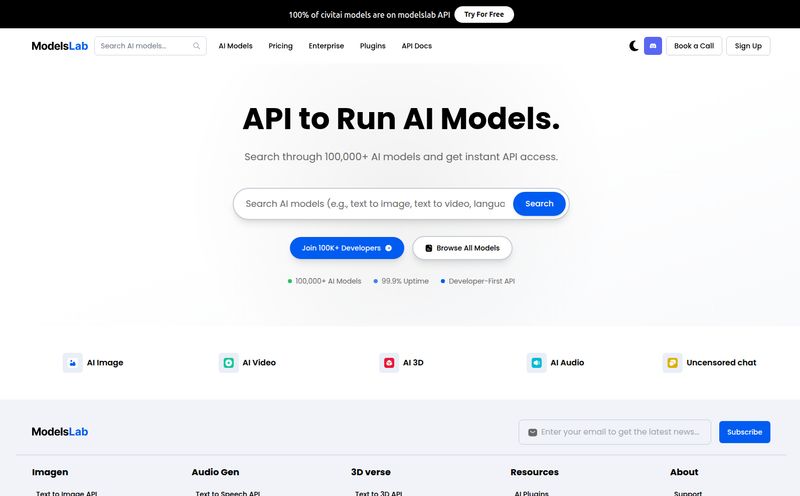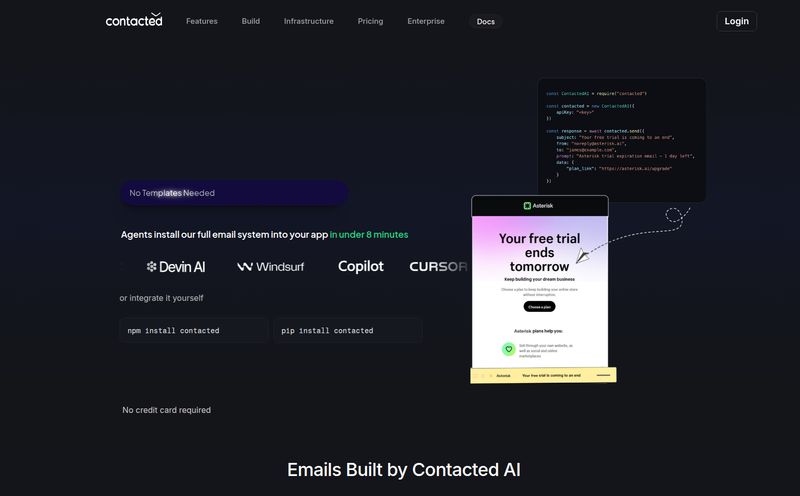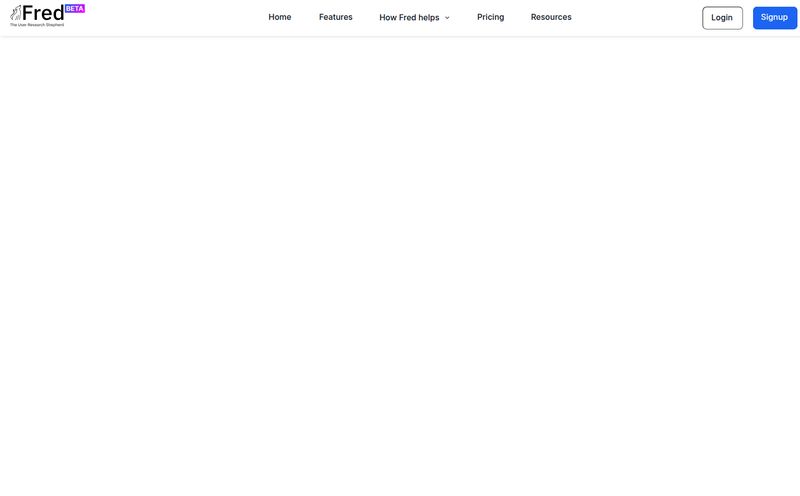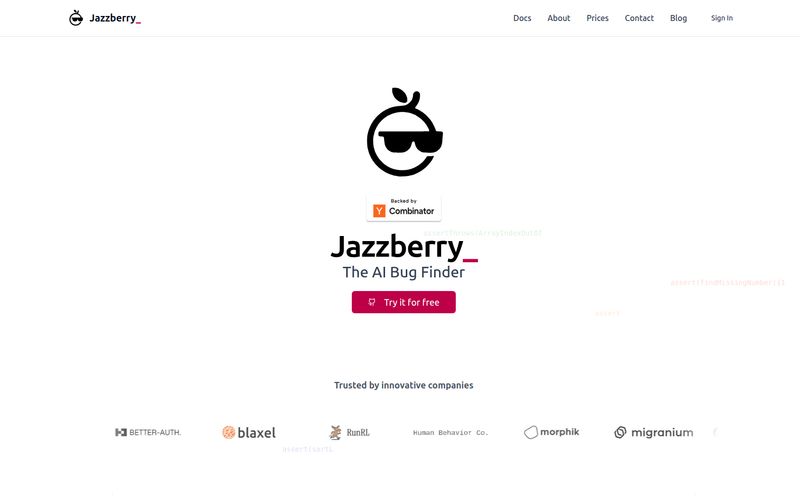If you're a developer, you know the feeling. You've had your head down all week, wrangling code, squashing bugs, and pushing commits. You feel like you've been productive. But when you look at that green-dotted GitHub contribution graph, it sometimes doesn't tell the whole story. Some of my most intense problem-solving weeks have resulted in a disappointingly sparse-looking graph. It's a weird kind of developer guilt, isn't it?
So, when I came across a tool called Weekly Github Insights, my curiosity was definitely piqued. It promises an AI-powered summary of your GitHub activities from the past 7 days. Simple. Elegant. But is it actually useful? Or is it just another notification to add to the digital noise? I decided to take a look.
What Exactly is Weekly Github Insights?
At its core, this platform is a straightforward digest. It connects to your GitHub account and, once a week, it uses AI to scan everything you've done—your commits, your pull requests, the repositories you've been active in—and then spits out a summary. Think of it like a personalized newsletter for your own work. The whole point is to give you a bird's-eye view of your efforts, keeping you in the loop and, hopefully, giving you a little motivational kick.
My First Impressions and the "Why" Behind It
Signing up was painless, which is always a good start. There were no hoops to jump through. But the real question for me was the 'why'. Why do I need this when GitHub already sends me notifications? My answer came after the first report. Seeing a sentence like, "You were most active in the 'Project-Phoenix' repository, closing 3 issues and merging 5 pull requests related to the new user authentication flow" hits different than just seeing a list of commit messages.

Visit Weekly Github Insights
It reframes your work. It's not just a series of isolated tasks; it's a narrative of your week. For a solo developer or a freelancer, this kind of feedback loop is something you often miss out on. You don't have a manager checking in on your progress, so a tool that says, "Hey, you did good work this week" can be surprisingly powerful.
The AI-Powered Summary in Action
The "AI-powered" part is what makes this more than just a data scraper. Instead of just listing your commits, the tool synthesizes the information. It seems to identify themes in your work for the week. For example, it might notice that most of your commits contained keywords like 'fix,' 'patch,' or 'hotfix' and summarize it as a week focused on bug squashing and maintenance. This contextual summary is where the magic lies. It's the difference between a raw log file and an executive summary, and for a quick glance, that summary is gold.
Where It Shines (And Where It Doesn't)
No tool is perfect, right? Every piece of software has its sweet spot. After using it for a bit, I've got a pretty good handle on what Weekly Github Insights is great for, and where you might need to look elsewhere.
The Motivation Boost is Real
I gotta admit, seeing that weekly summary is a nice little dopamine hit. It's a concrete reminder of the work you've put in, which can be a massive help during a long, drawn-out project or a week where you feel like you've been spinning your wheels. It effectively combats that 'developer guilt' I mentioned earlier. It’s less of a full-blown performance review and more like a friendly pat on the back from a robot colleague. And sometimes, thats all you need.
But Don't Expect a Deep Code Review
Here's the flip side. This tool is a summarizer, not an analyzer. It tells you what you did, but not necessarily how well you did it. It won’t give you feedback on your code quality, comment on your commit hygiene, or provide in-depth metrics on code churn. It's focused squarely on activity. Some might argue that's a limitation, but in my experience, trying to be a jack-of-all-trades often makes a tool a master of none. This platform knows its job—summarize activity—and it does it well.
Who is This Tool Actually For?
So, who should be using this? If you're a project manager or a tech lead looking for deep analytics on your team's performance, this probably isn't the tool for you. It's a personal productivity and motivation tool through and through. I think its ideal user is:
- The solo developer who wants a regular check-in on their own progress.
- The freelancer who needs a quick way to summarize their weekly work for clients or for their own records.
- The hobbyist coder who wants to stay motivated on their side projects.
- Any developer on a team who just wants a personal, private summary of their contributions without the pressure of a formal review.
It’s for the individual, not the corporation. And honestly, that's kinda refreshing.
Let's Talk About Pricing... Or the Lack Thereof
This is the interesting part. As of my review, I couldn't find a pricing page. This usually means one of a few things: it's a new tool in a beta phase and currently free, it's a passion project that will remain free, or they're working on a freemium model. For now, it seems to be free to use, which makes it a complete no-brainer to try out. There’s literally no barrier to entry. Given the server costs of running AI models, I wouldn't be surprised to see a 'Pro' tier introduced down the line, but for now, you can enjoy the service without reaching for your wallet.
Comparing It to Your Standard GitHub Notifications
You might be thinking, "I already get emails from GitHub. Why add this?" It's a fair question. The standard GitHub notifications are transactional. They tell you "your PR was merged" or "you have a new comment." They are granular and immediate. Weekly Github Insights is reflective. It zooms out and tells a story over a longer period. It's the difference between seeing individual trees and seeing the whole forest. Both have their place, but they serve very different purposes. I still need my instant GitHub notifications, but the weekly summary provides a layer of perspective that I've come to really appreciate.
Frequently Asked Questions
Is Weekly Github Insights free to use?
As of right now, yes! There is no public pricing information available, and the service appears to be completely free to use during what might be its initial launch or beta phase.
How does the AI summary actually work?
It seems to use Natural Language Processing (NLP) models to analyze the titles and descriptions of your commits and pull requests. It then identifies patterns and key actions (like 'fixing', 'creating', 'refactoring') to build a human-readable sentence about your week's work.
Does it work with GitLab or Bitbucket?
No, the tool is specifically built for the GitHub ecosystem. As its name implies, its focus is solely on summarizing activity from your GitHub account.
How often do I get the insights report?
As the name suggests, the report is generated and sent to you once a week, covering your activity over the previous seven days.
Is my code and data safe?
The platform would likely use GitHub's official API with read-only permissions for your activity feed. This means it can see your public activity and metadata but shouldn't have access to your private code itself. As with any third-party app, it's always good to review the permissions you grant upon connecting your account.
My Final Verdict
So, is Weekly Github Insights a game-changer? Maybe not in a revolutionary sense. It won't write your code for you or fix your bugs. But what it does, it does very well. It's a simple, elegant solution to a very human problem: the need for feedback and recognition. In a field where so much of our work is abstract and digital, getting a tangible summary of your efforts can be a surprisingly powerful motivator.
It's not for every team or every manager, but for the individual developer looking for a small boost and a better sense of their own progress, it’s a fantastic little tool. And since it's currently free, there's really no reason not to give it a shot. You might be surprised at how good it feels to get that little AI-powered pat on the back each week.
Reference and Sources
- GitHub Official Website: https://github.com/
- A great read on developer productivity from Martin Fowler: Is Quality Worth the Cost?



